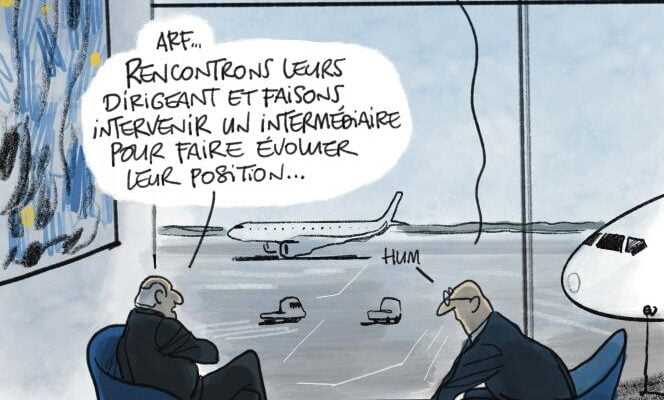The information was quietly released on January 4 on the World Bank website. For one year, until January 3, 2023, because she resorted to practices “anti-competitive” and “fraudulent” in particular for having met political leaders during a call for tenders procedure, ADP International (formerly ADP Management), the subsidiary of the Aéroports de Paris group responsible for international development, may not participate in any project in the world financed directly or indirectly by the Washington-based institution, nor to be awarded, over this period, a contract for which it would have previously competed.
The punishment does not end there. For twelve additional months, the subsidiary of ADP will have to show its credentials and meet the ethical requirements of the World Bank if it wants to respond again to calls for tenders. This banishment from international competitions – a first for the French group – follows a three-year investigation conducted by the World Bank into airport contracts awarded in Madagascar in 2015 and in Zagreb, Croatia, in 2011.
ADP is not alone in the cause. Bouygues Bâtiment International, responsible for carrying out major Bouygues Construction projects abroad, and Colas Madagascar, a road specialist, who formed a consortium with ADP, were also caught by World Bank investigators. The subsidiary of the Bouygues group remains eligible for calls for tenders, but it has twelve months to comply with World Bank standards. Colas Madagascar, on the other hand, is excluded for two firm years.
‘No bribery’
The three companies had won a contract to renovate and expand the two most important airports in Madagascar, that of Antananarivo, the capital, and that of the island of Nosy Be, a tourist paradise in the north of the big island, with, at the key, a twenty-eight-year concession. The World Bank blames them to be ” book[es] anti-competitive practices by participating in inappropriate meetings with government officials between February 4, 2015 and May 4, 2015”, when the tender procedure was launched. All three recognize the facts but plead, through Antonin Lévy, their lawyer, for a change in the rules during the game.
In fact, over-the-counter discussions began between the French group and the Malagasy leaders in the summer of 2014. Then a memorandum of understanding was signed. But the situation changes along the way. In February 2015, the consortium learns that the State is preparing to publish a call for expressions of interest, prior to a call for tenders. “There is then a real misunderstanding within the consortium, which has signed a firm contract with the State”, explains Antonin Lévy. Studies have been undertaken, for a few million euros. As they had promised, the French returned with their proposals. It is a new meeting, and other meetings that will follow, when the competition is officially launched, which in the eyes of the World Bank constitutes collusion. “What should the consortium have done? Denounce the over-the-counter contract with the Malagasy State and prosecute the latter for breach of its contract and request compensation? “ continues the lawyer.
You have 50.77% of this article left to read. The rest is for subscribers only.
